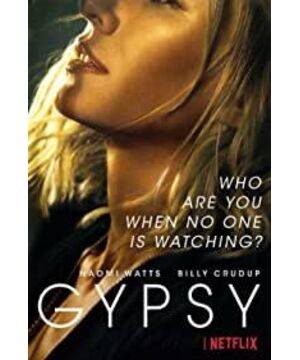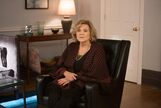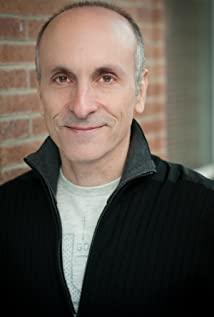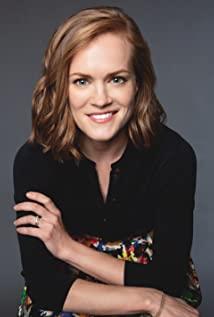The essence of love is to meet the idealized needs of the other in a relationship. Adults are independent individuals, and their mature love for each other is two-way related to each other. Infants are different. In the early stages of life, life and death are completely dependent on the caregiver, and the quality of the care environment provided by the caregiver directly affects the development of the baby. Since infants are in a state of chaotic unity, seeing themselves and the world as one and unable to distinguish between self and others, infants equate the quality of the environment they take care of with their own quality. In this process, infants gradually internalize the attitudes and emotions of external caregivers to form their own evaluation and cognition. The nourishment, warmth, and loving-kindness generated by the external environment are internalized by the baby, and the baby will think that he is good and worthy of being loved, and then will generate gratitude to give back the nourishment of the caregiver. (Gratitude is poured out of enough love, not enlightened; some socially enlightened expressions of gratitude may just be a cover for one's hostility, or to make one's behavior conform to social standards to gain praise and meet the needs of narcissism ) Insufficient milk, indifference and neglect in the environment will make the baby hostile to the caregiver, and the hostility to the caregiver will directly cause the fear of losing the caregiver, which is unbearable for the baby . So in order to defend against this fear, the infant projects hostility to the caregiver, who becomes more terrifying in the infant's eyes than it actually is, and in the process of aggressive outcasting, the infant also loses the energy part of himself, leading to self-poverty In the end, the baby is in persecution anxiety, unable to allow himself to fully develop his abilities, or to express himself with confidence.
The story of Jane's original family is not covered much in Gypsy, and it is a mysterious existence to the audience, just as Jane's original family has too many secrets. What can be seen is that Jane's father died very early, and Jane and her mother did not get along well. Once at the dinner table, Jane's mother laughed and said that when Jane was a child, she wanted to play Cinderella and finally lost, and she went home and cried a bit; Jane's husband asked why she didn't know this before, but Jane kept it a secret, saying that it was all a long time ago, so there was no need to mention it. It seems that from childhood to adulthood, Jane's fallen dreams have not been held, and these dreams eventually become unspeakable secrets, the deeper they are buried.
During the consultation, the client said the same thing day after day, took the same detour, and the consultation made almost no progress. In order to help the client more directly, Jane made up an identity for herself: Diane, a graduate of Stanford University, a single reporter , to facilitate access to the people in the visitor's life, to understand the truth and details of the visitor's life, and to help the visitor make decisions for life. On the surface, Diane's identity is made up for visitors, but in reality this identity provides Jane with an outlet to find her idealized self.
On one side is Diane's life. Diane likes to change, constantly trying new things, full of mystery and adventurous spirit. She is keen to take her clients to participate in drug rehabilitation groups, yoga activities, and to make friends with a visiting daughter and a visiting ex-girlfriend, And vigorously develops a love affair with the cafe girl Sidney; on the other side is Jane's life, trying to keep secrets about Diane, counseling, and various other secrets, maintaining a graceful posture, a decent job, and occasionally because of her husband and secretary. The relationship is jealous, upset by her daughter's ADHD and gender identity issues, but overall still maintains the look of a happy life.
Libido, who was imprisoned in the inner world, broke out, Jane switched between these two identities more and more, and more and more inner conflicts were staged in her life. There is a huge split between the hidden dream in the heart and the bright and beautiful life in reality. In order to allow the cafe girl Sidney to trust herself and show that she is open to her world, Jane steals the book created by her husband's secretary and tricks the girl into saying that she wrote it herself. The girl saw a signed author in a magazine and found out about Jane's husband's secretary's work place to complain. During the process, her husband learned that Jane was involved. At the same time, the old house that Jane kept secretly after many years of marriage was also discovered by her husband. The husband was very angry at Jane's elusive attitude, leaving a way out for herself, and not fully immersing herself in family life. When Jane was found out, she returned home and asked her mother why she didn't force her to sell the house. Jane's mother said, "because I know you need it." She said that Jane was too similar to her father, and his father was one of them. Someone with too many secrets.
Jane identified with her parents and copied their fate. There is a part of parents' secrets that they are afraid of being rejected by others. Facing their children, parents project part of their unacceptable parts and play the role of persecutors. Children feel that many of their natural expressions are unacceptable, and they will also recognize these unacceptable behaviors and thoughts as wrong, and learn to hide them in the process. Jane's mother knows that Jane needs a house of her own, and she also knows that Jane needs that house because she does not have enough sense of security, but she is not sensitive enough and has limited ability to meet Jane's idealized needs.
Jane's childhood dream was to play Cinderella on stage. In fairy tales, Cinderella is a fragile, abused by her stepmother and sister, and finally saved by a prince. In mental imagery, it's a story about a girl who projects her aggressiveness onto her stepmother and sister, and her utter goodness onto her prince. The girl expects to completely wipe out her bad side and fully merge with the good. Part of Jane's inner part is a fragile and dependent Cinderella. Unfortunately, with the failure of Cinderella's performance, this fragile Cinderella will also be deeply hidden. So we won't be surprised that Jane is mature and capable in life and work, and she wants to help others. She said that when she doesn't know what she wants, she helps others, and her own problems don't exist.
The problem doesn't just exist, it just manifests in another way. One of Jane's visitors in the play is a girl who is a drug addict. Every time Jane reports to the supervisory group that she is progressing smoothly, she takes the girl to join the drug rehabilitation group in private, and lets the girl live in the house she prepared for Diane's identity. Missing, Jane also learned that the stories the girl told before were false. She had been living in her mother's house and did not need the housing provided by herself.
The counseling didn't go well and the marriage started to have problems. Jane's husband recalled that when he first met Jane, Jane gave him a lot of freedom. He would admire Jane when he did a little thing, which inspired his self-confidence and added his vitality. Then Jane wobbled, not sure if she really wanted to get into the relationship, but eventually made the decision to enter the marriage, until the rift broke out again. In this relationship, Jane satisfies her husband's idealized needs, but not vice versa. Jane is very good at showing her superior side, and her husband often praises Jane for doing a good job, but the other side of Jane's fragile adventure, her husband has never entered, and Jane is not ready to let him enter her heart. The world, on the contrary, hides its other side even more because it cares too much. Two people also have different expectations for marriage. The husband longs for a stable life, while Jane pursues freedom and a novel life, but because she is different from her husband, Jane also takes this as her secret to the bottom of her heart. Over time, Jane's needs were not met, and she began to seek freedom outside of marriage, to find her original self. The husband is first frustrated, then angry. Eventually the relationship cracks.
Whether or not there are counselors in real life who take risks, break boundaries, and intrude into the lives of clients like Jane, Jane's mental journey is meaningful. The counselor needs to complete self-growth first, find the meaning of his existence, and then help the client, from the cognitive, behavioral and even personality level to help the client complete the change, and finally let the client make decisions for his own life, instead of comprehensively investigating the client. life so as to make the best decision for the visit. The counselor breaks into the "world", inquires about the life of the client in many ways, understands the specific situation, and puts forward clear guiding suggestions. On the surface, it is helping the client, and it may be effective in a short period of time, but such a change is not enough. To support the client's life, because deep down, the client has not changed.
From a growing person's perspective, how important it is to open yourself up and allow yourself to be in a relationship where you can share secrets.
View more about Gypsy reviews











